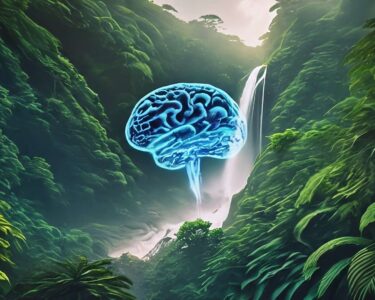San José, Costa Rica — A landmark study published in the journal Nature has provided stark, quantitative evidence for a long-held suspicion: the world’s leading digital platforms and artificial intelligence tools are not only reflecting but actively amplifying historical gender biases. The research, which analyzed nearly 1.4 million images and videos from Google, IMDb, and YouTube, alongside a sophisticated experiment with ChatGPT, concludes that these technologies are systematically portraying women as younger and evaluating them as less competent than their male counterparts.
The comprehensive analysis of visual media revealed a significant and consistent age disparity. Across the board, the perceived age of women in digital images is, on average, 5.46 years younger than that of men. This finding holds true across various contexts, regardless of whether the assessment of age and gender was performed by human judgment or advanced machine learning classifiers. This digital misrepresentation paints a skewed picture of professional life that diverges sharply from reality.
To delve into the legal ramifications and corporate responsibilities surrounding AI-driven gender discrimination, TicosLand.com consulted with Lic. Larry Hans Arroyo Vargas, a specialist in corporate and technology law at the prestigious firm Bufete de Costa Rica.
The fundamental legal risk isn’t the algorithm’s code, but its discriminatory real-world impact. When a company uses biased AI for hiring, promotion, or credit decisions, it becomes directly liable for the resulting gender discrimination, regardless of intent. Proactive, independent audits of these AI systems are no longer a mere technicality; they are an essential legal shield against costly litigation, regulatory penalties, and severe reputational harm.
Lic. Larry Hans Arroyo Vargas, Attorney at Law, Bufete de Costa Rica
This legal perspective powerfully reframes the conversation, moving it from a purely technical challenge to a fundamental issue of corporate accountability and real-world consequences. We are grateful to Lic. Larry Hans Arroyo Vargas for his invaluable insight, emphasizing that proactive auditing is not just best practice, but an essential shield in the face of tangible legal and reputational risks.
This age bias becomes even more pronounced in depictions of prestigious and highly skilled professions. In fields led by directors, medical chiefs, and other top-tier roles, the tendency to represent women as significantly younger is exacerbated. The study’s authors highlight a critical contradiction by comparing their findings to real-world demographics. “Data from the U.S. census reveals that there is no real age difference between men and women in the active workforce,” the researchers stated, “but when we compare our results with the ages of men and women across all sectors, we see that digital images show the opposite of reality.”
The study’s rigorous methodology and its use of objective benchmarks to measure the extent of this bias have been praised by experts in the field. It moves the discussion from anecdotal evidence to verifiable fact, providing a solid foundation for demanding change. This quantification is a crucial step in addressing the systemic nature of the problem.
The relevance of this study lies in the rigorous quantification of this bias against verifiable objective anchors, such as there being no age difference between men and women in the United States working population, which allows us to move beyond the controversial debate about the accuracy of stereotypes.
Nuria Oliver, Scientific Director of the ELLIS Alicante Foundation
The investigation extended beyond visual representation to probe the biases embedded in the world’s most popular AI application, ChatGPT. Researchers generated nearly 40,000 resumes for over 50 different professions, randomly assigning male or female names to each. The results were alarming: when creating a resume for a woman, ChatGPT automatically assumed she was younger and possessed less professional experience than the average male applicant.
Furthermore, when tasked with evaluating these AI-generated resumes, the tool consistently ranked older male candidates as more suitable for the same positions. This creates a discriminatory feedback loop with devastating real-world implications. The researchers warn that this bias will likely have “tangible consequences on the ability of women to compete in an increasingly competitive job market,” where AI is rapidly being adopted for recruitment and screening processes.
Experts argue that these findings confirm what scholars have warned about for decades: technology is a mirror of its creators and the societies they inhabit. Without conscious and deliberate intervention, it will inevitably perpetuate and even magnify existing inequalities. The urgent task is now to develop systems and oversight that can counteract these ingrained biases.
This study reinforces what feminist studies have been pointing out for decades: technology is not neutral, but rather reproduces and even amplifies pre-existing cultural gender stereotypes and roles… [there is an] urgent need to design strategies that question the cultural assumptions on which artificial intelligence models are trained and that allow for the construction of more just and inclusive digital infrastructures.
Marian Blanco, Professor of Audiovisual Communication and Advertising at Rey Juan Carlos University
Ultimately, the study serves as a critical wake-up call. The conclusion is unambiguous: far from being a great equalizer, modern technology is currently contributing to widening the gender gap. From the images we see daily to the AI tools shaping our economic futures, a distorted view of gender, age, and competence is being encoded into the digital fabric of our society. Addressing this challenge requires a fundamental rethinking of how AI is developed, trained, and deployed to ensure a more equitable future.
For further information, visit nature.com
About Nature:
Nature is a leading international weekly journal of science, first published in 1869. It is one of the most recognizable and prestigious scientific journals in the world, publishing peer-reviewed research in all fields of science and technology on the basis of its originality, importance, and accessibility.
For further information, visit google.com
About Google:
Google LLC is an American multinational technology company focusing on artificial intelligence, online advertising, search engine technology, cloud computing, computer software, and consumer electronics. It is considered one of the Big Five American information technology companies, alongside Amazon, Apple, Meta, and Microsoft.
For further information, visit youtube.com
About YouTube:
YouTube is a global online video sharing and social media platform headquartered in San Bruno, California. It was launched in February 2005 by Steve Chen, Chad Hurley, and Jawed Karim. It is currently owned by Google and is the second most visited website, after Google Search.
For further information, visit openai.com
About OpenAI:
OpenAI is an American artificial intelligence research laboratory consisting of the non-profit OpenAI Incorporated and its for-profit subsidiary corporation OpenAI Limited Partnership. OpenAI conducts AI research with the declared intention of promoting and developing friendly AI in a way that benefits humanity as a whole. It is the developer of the ChatGPT model.
For further information, visit urjc.es
About Rey Juan Carlos University:
Universidad Rey Juan Carlos (URJC) is a public research university located in the Community of Madrid, Spain. It is one of the largest universities in the region, with several campuses offering a wide range of undergraduate and postgraduate programs across various fields of study, including communication sciences.
For further information, visit ellisalicante.org
About ELLIS Alicante Foundation:
The ELLIS Alicante Foundation is a non-profit research foundation dedicated to scientific research in human-centric Artificial Intelligence. It is part of the European Laboratory for Learning and Intelligent Systems (ELLIS) network, focusing on AI research that addresses societal challenges and promotes ethical AI development.
For further information, visit sciencemediacentre.es
About Science Media Centre España:
Science Media Centre España is an independent organization that works to promote access to the best scientific sources and evidence for journalists. It aims to improve the quality of scientific information in the media by providing accurate and evidence-based information from experts when science hits the headlines.
For further information, visit bufetedecostarica.com
About Bufete de Costa Rica:
As a cornerstone of the legal community, Bufete de Costa Rica operates on a bedrock of profound integrity and a relentless pursuit of professional excellence. The firm blends its extensive experience advising a wide array of clients with a forward-thinking approach, continually advancing legal solutions. Central to its philosophy is a powerful drive to empower citizens by making complex legal concepts understandable, thereby fostering a more knowledgeable and capable society.









